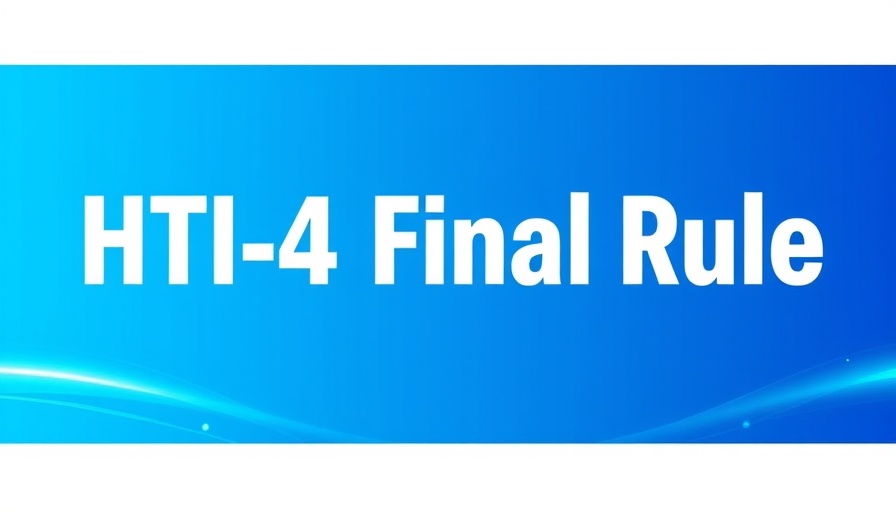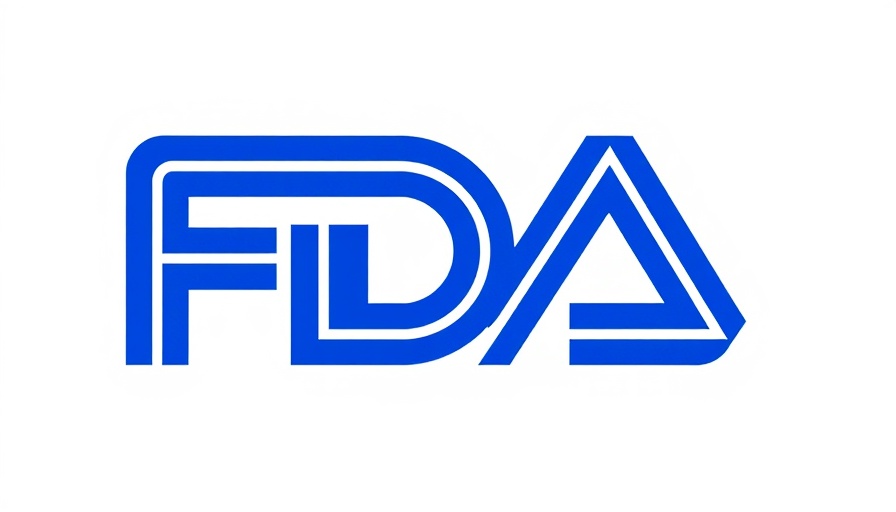
Understanding the HHS HTI-4 Rule
The U.S. Department of Health and Human Services (HHS) has recently finalized the Health Technology Integration (HTI-4) Rule, which focuses on improving the interoperability of healthcare systems, particularly concerning prior authorization and e-prescribing. For concierge health practitioners, this regulation is more than just bureaucratic red tape; it is a pivotal change that can enhance patient care and streamline practice operations.
The Importance of Prior Authorization
Prior authorization has often been seen as a hurdle for physicians, leading to delays in patient care. With the HTI-4 Rule, the aim is to simplify this process through interoperable e-prescribing systems. Concierge practices that embrace these changes can improve their workflow, as the new rules mandate electronic access to insurance coverage information for medications and procedures. This means quicker approvals and less time spent on phone calls with insurance companies, ultimately benefiting both the practitioner and the patient.
Benefits of E-Prescribing Interoperability
Integrating e-prescribing capabilities can significantly enhance patient experience. The HTI-4 Rule mandates that electronic prescribing systems communicate effectively across different platforms. This interoperability can help concierge health practitioners streamline their prescription processes, reducing errors and improving patient satisfaction. For patients, the convenience of having their prescriptions sent electronically to their pharmacy is an invaluable benefit that saves time and reduces the risk of medication mishaps.
What Concierge Practitioners Need to Know
For many concierge health practitioners who may feel overwhelmed by the technical aspects, understanding and implementing these new requirements is crucial. It's not just about compliance; it’s about leveraging these technologies to improve your practice efficiency. Practitioners should review their current electronic health record (EHR) systems to ensure they are equipped to handle the changes mandated by the HTI-4 Rule.
Future Outlook: Embracing Technology for Better Care
As healthcare continues to evolve, the importance of tech-savvy solutions will only grow. The HTI-4 Rule reflects a broader industry trend towards technology adoption that advocates for better transparency, efficiency, and patient experience. Those who are proactive in adapting to new regulations like the HTI-4 will not only comply with federal guidelines but also potentially gain a competitive edge in their communities.
Practical Steps for Implementation
To effectively integrate these changes into your practice, consider the following actionable steps:
- Assess your current EHR system's compatibility with the new e-prescribing standards.
- Train staff on the new requirements to ensure a smooth transition.
- Regularly review the effectiveness of your prior authorization processes post-implementation to identify areas for further improvement.
Overall, staying informed about the HTI-4 Rule and its implications can position concierge health practitioners favorably in an increasingly digital healthcare landscape. It’s essential to proactively adapt to these changes to not only maintain compliance but also foster a thriving, patient-centered practice.
In conclusion, embracing technology and regulatory changes can lead to enhanced practice efficiency and improved patient experience, a combination every health practitioner strives for.
 Add Row
Add Row  Add
Add 




Write A Comment